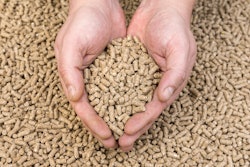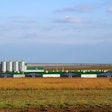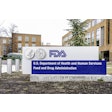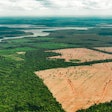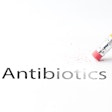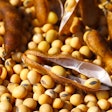
Kody Blois, Canada's new Minister of Agriculture and Agri-Food and Rural Economic Development, said he is making it easier for Canadian producers to find alternatives to U.S.-sourced animal feed.
Blois, a Member of Parliament from Kings-Hants, Nova Scotia, was sworn in as the agriculture minister on March 14 by new Canadian Prime Minister Mark Carney.
At a time when trade tensions between the United States and Canada are high and tariff threats continue, Blois released a statement that said ensuring the resilience of Canada’s agriculture sector and enabling a competitive advantage and level playing field for Canadian agricultural products are among his top priorities.
Blois said he and the Canadian Food Inspection Agency (CFIA) are working to speed up product approvals to provide alternatives to U.S.-sourced animal feed.
“This measure will alleviate the burden of tariffs on animal feed producers, by increasing the number of approved feed ingredients from within Canada or from other countries,” said Blois. “The CFIA will work with industry to understand prioritization needs and provide new guidance to facilitate the pre-market evaluation process for the approval or registration of some feeds products which are already authorized by a trusted foreign regulator. Together, these measures will enable quicker access to alternative feeds, reduce costs to farmers in the short-term, and support future supply chain sustainability for Canadian producers for years to come.”
BSE-enhanced feed ban requirements
Another priority for Blois related to the feed industry is an effort to harmonize Canada’s bovine spongiform encephalopathy (BSE)-enhanced feed ban with U.S. requirements.
“Globally, the incidence of BSE has declined significantly and in 2021, the World Organisation for Animal Health recognized Canada as a country with negligible risk for BSE. Currently, differences between Canadian and U.S. requirements put our beef industry at a competitive disadvantage to their U.S. counterparts. We are working with industry on options to reduce unnecessary costs and improve competitiveness, while continuing to protect animal health and maintain Canada’s international trade access,” Blois said.
Salmonella testing
Blois said he also wants to address “stakeholder irritants” and level the playing field for Canadian producers by implementing regulatory changes that support industry growth and enable fair trade.
One example of this, he said, is that the Canadian government is working to ensure parity between Canadian poultry hatcheries and U.S. hatcheries, “by harmonizing testing requirements for Salmonella enteritis, in line with recent updates to Canadian hatchery regulations.”
Blois succeeds Lawrence MacAulay as Canada’s agriculture minister. MacAulay served in the minister’s position from 2015 through 2019, and he returned to the job in 2023, where he remained until last week. Marie-Claude Bibeau was the country’s agriculture minister for the four years between MacAulay’s two terms.


